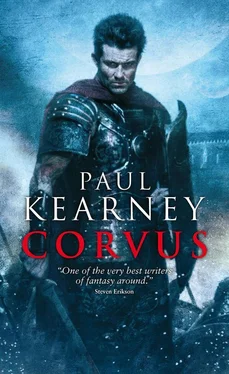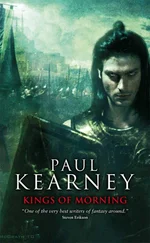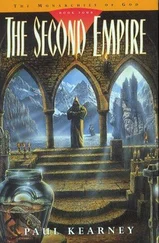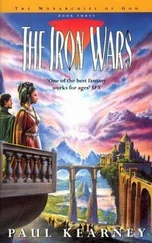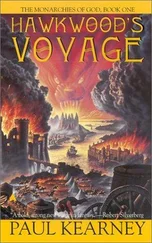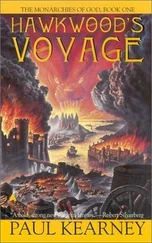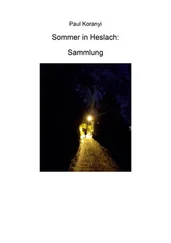Paul Kearney - Corvus
Здесь есть возможность читать онлайн «Paul Kearney - Corvus» весь текст электронной книги совершенно бесплатно (целиком полную версию без сокращений). В некоторых случаях можно слушать аудио, скачать через торрент в формате fb2 и присутствует краткое содержание. Жанр: Фэнтези, на английском языке. Описание произведения, (предисловие) а так же отзывы посетителей доступны на портале библиотеки ЛибКат.
- Название:Corvus
- Автор:
- Жанр:
- Год:неизвестен
- ISBN:нет данных
- Рейтинг книги:5 / 5. Голосов: 1
-
Избранное:Добавить в избранное
- Отзывы:
-
Ваша оценка:
- 100
- 1
- 2
- 3
- 4
- 5
Corvus: краткое содержание, описание и аннотация
Предлагаем к чтению аннотацию, описание, краткое содержание или предисловие (зависит от того, что написал сам автор книги «Corvus»). Если вы не нашли необходимую информацию о книге — напишите в комментариях, мы постараемся отыскать её.
Corvus — читать онлайн бесплатно полную книгу (весь текст) целиком
Ниже представлен текст книги, разбитый по страницам. Система сохранения места последней прочитанной страницы, позволяет с удобством читать онлайн бесплатно книгу «Corvus», без необходимости каждый раз заново искать на чём Вы остановились. Поставьте закладку, и сможете в любой момент перейти на страницу, на которой закончили чтение.
Интервал:
Закладка:
He lifted aside a beam and it crumbled to charcoal in his hands. Broken pottery crunched underfoot. He startled a blackbird, which launched itself from the ruin with an indignant clatter.
He passed through what had been the side door, to the space where he and Aise had slept.
And knelt there, remembering. Something glittered in the sunlight, and he stooped and rummaged through the ashes. A piece of aquamarine blue glass, a shard of memory. He clenched it in his palm and bent over with the sudden pain of the pictures it conjured up in his mind.
At last he rose again, breathing hard, his eyes burning. He looked up, and there were swallows in the air above him, carving gleeful arcs out of the sky. They were dropping mud as they swooped, building in the crevices of the walls.
He left the house, walked out to join the others in the sunshine and the placid glimmer of the river. Above him the woods hung on the slopes of the glen, new leaves unfurling green-tipped on the beech and oak and birch thickets. The place was alive with birdsong.
Rian took his hand. He lifted Ona up into his embrace, and the child put her arms about his neck.
He looked at Fornyx and Philemos.
“We’d best get started, I suppose. There’s a lot to be done.”
GLOSSARY
Aichme: A spearhead, generally of iron but sometimes of bronze. The spearhead is usually some nine inches in length, of which four inches is the blade.
Anande: The Kefren name for the moon known as Haukos; in their tongue it means patience.
Antimone: The veiled goddess, protector and guardian of the Macht. Exiled from heaven for creating the black Macht armour, she is the goddess of pity, of mercy, and of sadness. Her Veil separates life from death.
Antimone’s Gift / the Curse of God: Black, indestructible armour given to the Macht in the legendary past by the goddess Antimone, created by the smith-god Gaenion himself out of woven darkness. There are some five to six thousand sets of this armour extant upon the world of Kuf, and the Macht will fight to the death to prevent it falling into the hands of the Kufr.
Apsos: God of beasts. A shadowy figure in the Macht pantheon, reputed to be a goat-like creature who will avenge the ill-treatment of animals and sometimes transform men into beasts in revenge or as a jest.
Araian: The Sun, wife of Gaenion the smith.
Archon: A Kufr term for a military officer of high rank, a general of a wing or corps.
Bel: The all-powerful and creative god who looks over the Kufr world. Roughly equivalent to the Macht “God,” but gentler and less vindictive.
Carnifex: An archaic term for an army surgeon, or any would-be healer who travels with armed men. Its ancient meaning denotes a butcher or executioner; an example of Macht humour.
Centon: Traditionally the number of men who could be fed from a single centos, the large black cauldron mercenaries eat from. It approximates one hundred men.
Chamlys: A short cloak, commonly reaching to mid-thigh.
Chiton: A short-sleeved tunic open at the throat, reaching to the knee. The female version is longer.
Drepana: A heavy, curved slashing sword associated with the lowland peoples of the Macht.
Firghe: The Kefren name for the moon Phobos, meaning anger.
Gaenion: The smith-god of the Macht, who created the Curse of God for Antimone, who wrought the stars and much of the fabric of Kuf itself. He is married to Araian, the sun, and his forges are reputed to be upon the summit of Mount Panjaeos in the Harukush.
Goatherder tribes: Less sophisticated Macht who do not dwell in cities but are nomadic hill-people. They possess no written language, but have a large hoard of oral culture.
Goatmen: Degenerate savages who belong to no city, and live in a state of brutish filth. They wear goatskins by and large, and keep to the higher mountain-country of the Macht lands.
Hell: The far side of the Veil. Not hell in the Christian sense, but an afterlife whose nature is wholly unknowable.
Himation: A long, fine cloak, sometimes worn ceremonially.
Honai: Traditionally, a Kefren word meaning finest. It is a term used to describe the best troops in a King’s entourage, not only his bodyguards, but the well-drilled professional soldiers of the Great King’s household guard.
Hufsan / Hufsa: Male and female terms for the lower-caste inhabitants of the Empire, traditionally mountain-folk of the Magron, the Adranos and the Korash. They are smaller and darker than the Kefren, but hardier, more primitive, and less cultured, preferring to preserve their records through storytelling rather than script.
Isca: A Macht city, destroyed by a combination of her neighbours in the year before the Battle of Kunaksa. The men of Isca were semi-professional warriors who trained incessantly for war and had a habit of attacking their neighbours. Legend has it the founder of Isca, Isarion, was a protege of the god Phobos.
Kefren: The peoples of the Asurian heartland, who led the resistance to the Macht in the semi-legendary past, and then established an Empire on the back of that achievement. Throughout the Empire, they are a favoured race, and have become a caste of rulers and administrators.
Kerusia: In Machtic, the word denotes a council, and is used to designate the leaders of a community. In mercenary circles it can also refer to a gathering of generals, sometimes but not always elected by-common consent.
Komis: The linen head-dress worn by the nobility of the Asurian Empire. It can be pulled up around the head so that only the eyes are visible, or can be loosed to reveal the entire face.
Kuf: The world, the earth, the place of life set amid the stars under the gaze of God and his minions.
Kufr: A derogatory Macht term for all the inhabitants of Kuf who are not of their own race.
Mora: A formation of ten centons, or approximately one thousand men.
Mot: The Kufr god of barren soil, and thus of death.
Niseian: A breed of horse from the plains of Niseia, reputedly the best warhorses in the world, and certainly the greatest in stature. Mostly black or bay, and over sixteen hands in height, they are the mounts of Kings and Kefren nobility, and are rarely seen outside the Asurian heartland.
Obol: A coin, made of bronze, silver, or gold.
Ostrakr: The term used for those unfortunates who have no city as their own, either because they have been exiled, their city has been destroyed, or they have taken up with mercenaries.
Othismos: The name given to the heart of hand-to-hand battle, when two bodies of heavy infantry meet.
Paean: A hymn, usually sung upon the occasion of a death. The Macht sing their Paean going into battle, to prepare themselves for their own demise.
Panoply: The name given for a full set of heavy infantry accoutrements, including a helm, a cuirass, a shield and a spear.
Pasang: One thousand single paces. Historically, one mile is a thousand double-paces of a Roman Legionary, thus a pasang is half a mile.
Peplos: A woman’s garment, very like a cloak but generally finer and lighter.
Phobos and Haukos: The two moons of Kuf. Phobos is the larger, and is pale in colour. Haukos is smaller and pink or pale red in colour. Also, the two sons of the goddess Antimone. Phobos is the god of fear, and Haukos the god of hope.
Qaf: A mysterious race native to the mountains of the Korash. They are very tall and broad and seem to be a strange kind of amalgam of Kufr and ape. They are reputed to have their own language, but appear as immensely powerful beasts that haunt the snows of the high passes.
Rimarch: An archaic term for a file-closer, the last man in the eight-man file of a phalanx, and second-in-command of the file itself.
Sauroter: The lizard-sticker. The counterweight to the aichme, at the butt of the spear, generally a four-sided spike somewhat heavier than the spearhead so the spear can be grasped past the middle and still retain its balance. It is used to stick the spear upright in the ground, and also to finish off prone enemies. If the aichme is broken off in combat, the sauroter is often used as a substitute.
Читать дальшеИнтервал:
Закладка:
Похожие книги на «Corvus»
Представляем Вашему вниманию похожие книги на «Corvus» списком для выбора. Мы отобрали схожую по названию и смыслу литературу в надежде предоставить читателям больше вариантов отыскать новые, интересные, ещё непрочитанные произведения.
Обсуждение, отзывы о книге «Corvus» и просто собственные мнения читателей. Оставьте ваши комментарии, напишите, что Вы думаете о произведении, его смысле или главных героях. Укажите что конкретно понравилось, а что нет, и почему Вы так считаете.
